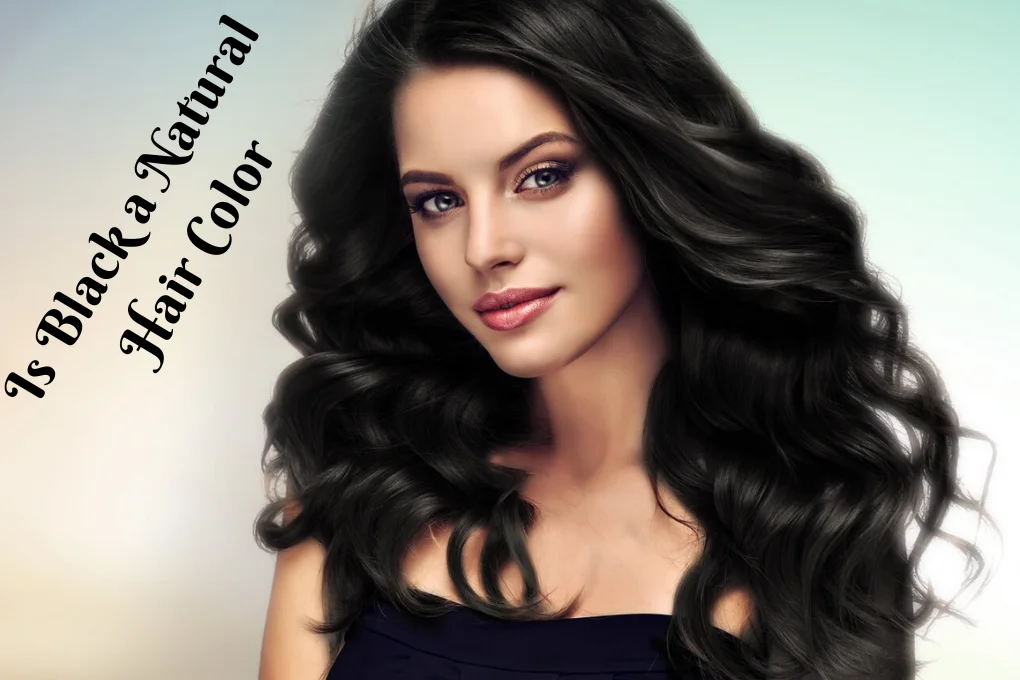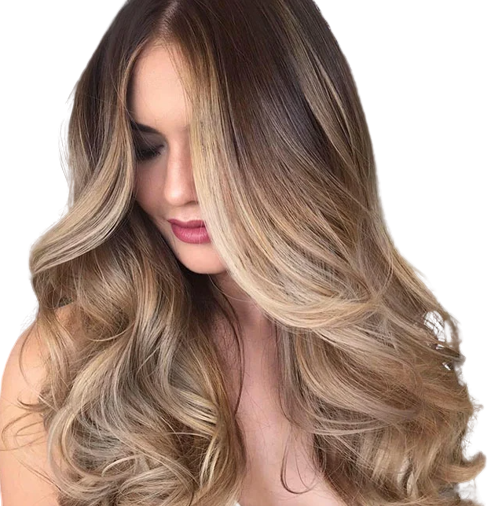Hair color is a fascinating subject that has intrigued humans for centuries. People have experimented with hair dyes and colors to express themselves and make a statement.
When it comes to natural hair colors, most people think of shades of brown, red, or blonde. However, one color that is often overlooked is black. Is black hair a natural hair color?
Yes, black is a natural hair color. It is the most common hair color in the world, with over 50% of the population having black hair.
Black hair is caused by melanin, a pigment that gives color to hair, skin, and eyes.
One of the most common hair colors is black, but is black a natural hair color? This article will explore the truth about hair color and answer this question.
What is black hair?
Before determining whether black hair is a natural color, we need to understand what black hair is. Hair color is determined by the amount and type of melanin in the hair.
Melanin is a pigment produced by specialized cells called melanocytes located in the hair follicles.
Black hair is the darkest color, characterized by high levels of melanin. There are different types of black hair, including Type 1a, which is straight and fine, and Type 4c, which is tightly coiled and densely packed.
Black hair also has unique characteristics, such as a tendency to be dry, fragile, and prone to breakage. Genetics, age, and environmental factors can affect the texture and appearance of black hair.
Is Black a Natural Hair Color?
Although black hair is a common color among people of African descent, many misconceptions and myths surround it.
Some people believe black hair is not a natural hair color and results from dyeing or relaxing it. This belief is based on the misconception that natural hair cannot be black.
However, scientific evidence suggests that black hair is a natural hair color. Studies have shown that melanin in the hair follicles is responsible for hair color and that individuals with darker skin have more melanin in their hair.
Additionally, black hair has been found to have a higher concentration of the pigment eumelanin, which contributes to the dark color.
Melanin is produced by cells called melanocytes, which are located in the hair follicle. The amount and type of melanin produced determine the hair color.
People with more melanin have darker hair, while people with less melanin have lighter hair.

The Impact of Society’s Perception of Black Hair
The negative perception of black hair has significantly impacted people of African descent. Research has shown that negative stereotypes and biases about black hair can lead to lower self-esteem, decreased job opportunities, and even mental health issues.
Many individuals feel pressure to conform to Western beauty standards, which often involve straightening or chemically treating their hair. This can be damaging to their hair and their overall well-being.
There has been a movement to embrace natural hair and promote hair positivity to challenge these societal norms.
This includes advocating for policies that protect natural hairstyles in schools and workplaces and creating safe spaces for individuals to express themselves through their hair.
By changing the narrative surrounding black hair, we can empower individuals to embrace their natural hair and to feel confident in their skin.
How to Get Black Hair?
The color of your hair is largely determined by genetics. However, if you want to temporarily or permanently darken your hair color, you can try a few options.
Hair Dye
The most common way to get black hair is to use hair dye. You can dye your hair at home or a salon. Look for hair dyes specifically formulated for black hair and follow the instructions carefully to achieve the desired shade.
Henna
Henna is a natural hair dye that can be used to darken hair. It is a plant-based dye found in most health food stores. Henna can be messy, so follow the instructions carefully and protect your clothes and skin.
Tea Rinse
A black tea rinse can help to darken your hair temporarily. Brew a strong pot of black tea, let it cool, and then pour it over your hair. Leave it on for 30 minutes to an hour before rinsing it out. Repeat the process once or twice a week for best results.
Coffee Rinse
Like a tea rinse, a coffee rinse can also help temporarily darken your hair. Brew a strong pot of coffee, let it cool, and then pour it over your hair. Leave it on for 30 minutes to an hour before rinsing it out. Repeat the process once or twice a week for best results.
Remember to take good care of your hair by using products specifically formulated for your hair type and avoiding excessive heat styling and chemical treatments.
How to Naturally Darken Your Hair?
If you want to darken your hair naturally, there are several methods you can try:
Black Tea
Brew a pot of black tea and let it cool. Then, rinse your hair with the tea and let it sit for about an hour before rinsing it with water. Do this once or twice a week to darken your hair gradually.
Coffee
Brew a strong pot of coffee and let it cool. Then, apply the coffee to your hair and let it sit for about an hour before rinsing it with water. Do this once a week to darken your hair.
Sage
Boil a handful of sage leaves in water for about 30 minutes. Let the mixture cool and strain out the leaves. Then, apply the sage water to your hair and let it sit for about an hour before rinsing it out with water. Do this once a week to darken your hair.
Walnut Shells
Crush walnut shells into a powder and boil them in water for about 30 minutes. Let the mixture cool and strain out the shells. Then, apply the walnut water to your hair and let it sit for about an hour before rinsing it out with water. Do this once a week to darken your hair.
Note that natural methods of darkening hair may not be as effective or as long-lasting as chemical hair dyes, and the results may vary depending on your hair type and natural hair color. Also, do a patch test before trying these methods to ensure you are not allergic to any ingredients.
Is Black Considered a Natural Color?
Yes, black is considered a natural color. Black is the darkest color on the visible spectrum and is created by the absence of light. Many natural objects, such as coal and ebony, are black.
Is Black a Rare Hair Color?
No, black is not a rare hair color. It is the most common hair color in the world. According to a study by the University of London, over 80% of people worldwide have dark brown or black hair.
Is Black a Common Hair Color?
Yes, black is a common hair color, particularly in people with East Asian, Southeast Asian, and South Asian ancestry.
It is estimated that around 90% of the population in these regions have black or dark brown hair.
However, black hair is also found in other populations worldwide, including those of African, Middle Eastern, and European descent.
While black hair is common, the shade and texture of black hair can vary greatly depending on factors such as genetics and environmental factors.
The Benefits of Dying Your Natural Hair Black — Clairol Textures & Tones Hair Dye Review
Is Black Hair Called Natural Hair?
No, black hair is not natural. “natural hair” generally refers to hair in its natural state, without any chemical treatments such as relaxers or texturizers.
While black hair can be natural, it can be chemically treated like any other color.
Natural black hair refers to hair that has not been chemically treated to alter its natural color or texture but rather left in its natural state.
Is Black a Genetic Hair Color?
Yes, black hair color is a genetic trait determined by the amount of melanin in the hair follicle. Melanin is a pigment that gives color to hair, skin, and eyes.
The more melanin in the hair, the darker the hair color. The genetics of hair color are complex, and multiple genes are involved in determining hair color.
While the inheritance patterns for hair color are not as straightforward as some other genetic traits, it is generally believed that hair color is inherited from both parents.
The specific combination of genes inherited from each parent will determine the hair color of their offspring.
FAQs
Is it true that black hair doesn’t grow as fast as other hair types?
No, black hair grows at the same rate as other hair types, but it may appear to grow more slowly due to its tightly coiled texture.
Can you dye black hair without damaging it?
Yes, you can dye black hair, but it is important to use gentle products and avoid excessive processing, which can damage the hair.
How often should you wash black hair?
It depends on the individual, but washing black hair once a week or every two weeks is generally recommended.
What are some protective styles for black hair?
Protective styles include braids, twists, buns, and weaves.
What are some natural remedies for dry or damaged black hair?
Natural remedies for dry or damaged black hair include coconut oil, aloe vera, and apple cider vinegar.
Can hair color change naturally over time?
Yes, hair color can change naturally over time due to genetics, age, and environmental factors.
Is black hair more common in certain ethnic groups?
Yes, black hair is more common in certain ethnic groups, including people of African, Asian, and Indigenous descent.
What is the most common hair color?
Black is the most common hair color, with over 50% of the world’s population having black hair.
Final Thoughts
Black hair is a natural hair color often stigmatized in Western societies. However, we can challenge these negative perceptions and promote hair positivity by understanding black hair’s scientific evidence and cultural significance.
Black is a natural hair color determined by the amount and type of melanin melanocytes produce. Several factors can affect hair color, including genetics, age, and environmental factors.
Hair dyes and colors have been used for thousands of years to change hair color, but it is essential to use them correctly and follow proper hair care routines to maintain healthy hair.
Now that you know the truth about hair color, you can make informed decisions about your hair and experiment with different colors and styles. So go ahead and express yourself through your hair!
